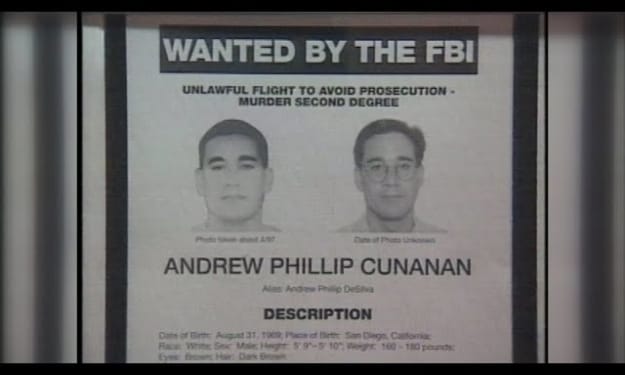
Criminal profiling is a subject that has fascinated and perplexed both experts and the general public alike. The quest to understand what makes a serial killer tick and why they commit such heinous acts has been a recurring question in the field of criminology. Are these killers inherently predisposed to violence, a product of their environment, or a complex interplay of both factors? This article delves into the world of serial killers and criminal profiling, attempting to shed light on the enigmatic minds behind these gruesome crimes.
## The Nature vs. Nurture Debate
Serial killers represent a dark and eerie corner of the criminal world, leaving behind a trail of terror and mystery. The question of what drives them to commit multiple acts of murder remains largely unanswered. Some experts argue that, as humans, we all have the potential for violence as a survival mechanism, but in the case of serial killers, something within them seems broken, lacking the intellectual moderation function that restrains most people. These individuals act solely on their basic instincts.
## Childhood Trauma: A Common Thread?
While many serial killers have reported experiencing childhood trauma, it's important to note that not all of them have this background. Additionally, the accounts of trauma are often self-reported and subjective. This inconsistency makes it challenging to pinpoint a single cause or explanation for serial killers' actions, leaving them largely shrouded in mystery.
##Profiling: An Imperfect Science
In 2018, historian and journalist Peter Vronsky, known for his work on serial killers, shared his insights into what motivates serial killers. His books, such as "Serial Killers: The Method and Madness of Monsters," have explored the depths of the human psyche and aimed to understand the minds of these killers. However, profiling remains far from an exact science, with numerous instances of incorrect predictions by profilers.
## The Ted Bundy Enigma
Notably, some serial killers, like Ted Bundy, seem to have had ordinary childhoods despite their dark later lives. Ted Bundy went to great lengths to present himself as an ordinary person, but his sinister actions tell a different story. This duality adds to the complexity of understanding serial killers.
## Compulsive Acts of Violence
Serial killers exhibit a wide range of behaviors, motives, and characteristics, making it challenging to create a single profile that fits them all. Some are methodical and calculated, while others are impulsive and disorganized. The variation among serial killers defies easy categorization.
## Profiling in Action
Despite its limitations, criminal profiling has had its share of successes. Profilers can analyze crime scenes, forensic evidence, victim backgrounds, and more to construct profiles of potential suspects. Understanding the killer's modus operandi (MO) and signature are crucial aspects of profiling. The MO can change, but the signature remains a consistent part of the killer's fantasy.
## The Birth of Profiling
The roots of criminal profiling can be traced back to World War II, when Adolf Hitler was psychologically profiled to anticipate his actions. However, it wasn't until the 1970s that the FBI established its Behavioral Sciences Unit. The National Center for the Analysis of Violent Crime was introduced in 1981, focusing on identifying and tracking repeat killers. This unit has played a role in popular culture, inspiring movies like "The Silence of the Lambs."
## The Six Steps of Criminal Profiling
Criminal profiling involves a systematic approach:
ProfilingInputs:* Analyzing crime scenes, forensic evidence, victim backgrounds, andmore.
Constructing a Decision ProcessModel:* Determining the killer's characteristics, motives, and victimchoices.
CrimeAssessment:* Identifying whether the killer is organized ordisorganized.
CriminalProfile:* Creating a detailed report on the suspectedkiller.
Investigation: following leads and pursuing potential perpetrators.
**Apprehension:** Comparing the profile to the actual killer and adding the results to a database for future reference.
## Profiling: Successes and Criticisms
While profiling has led to the apprehension of serial killers like Ted Bundy and Richard Chase, it has also faced criticism. Critics argue that it is an imperfect science with a high potential for error.
## Global Perspectives
Serial killers are not exclusive to the United States; they exist worldwide. Many countries, including the UK, Germany, China, and Russia, have their own histories of sadistic serial killers, often unpublicized. The global context of serial killings underscores the importance of understanding the minds of these killers.
## Conclusion
The world of criminal profiling remains as intriguing as it is confounding. Serial killers defy easy categorization, making it challenging to predict or understand their actions fully. While profiling has seen successes, it is far from infallible, leaving room for both fascination and skepticism. The quest to unravel the minds of serial killers continues, shedding light on one of the darkest corners of the human psyche.
About the Creator
Zakaria
📝 Discover a World of Ideas and Insights 🌟 Welcome to a treasure trove of thought-provoking articles carefully crafted to inform, inspire, and entertain. Our articles are more than just words; they are windows into new perspectives.






Comments (1)
Great fantastic work and fascinating! Thank you for writing and unlocking this new world for me! I really enjoyed learning about the serial killers! Great work!